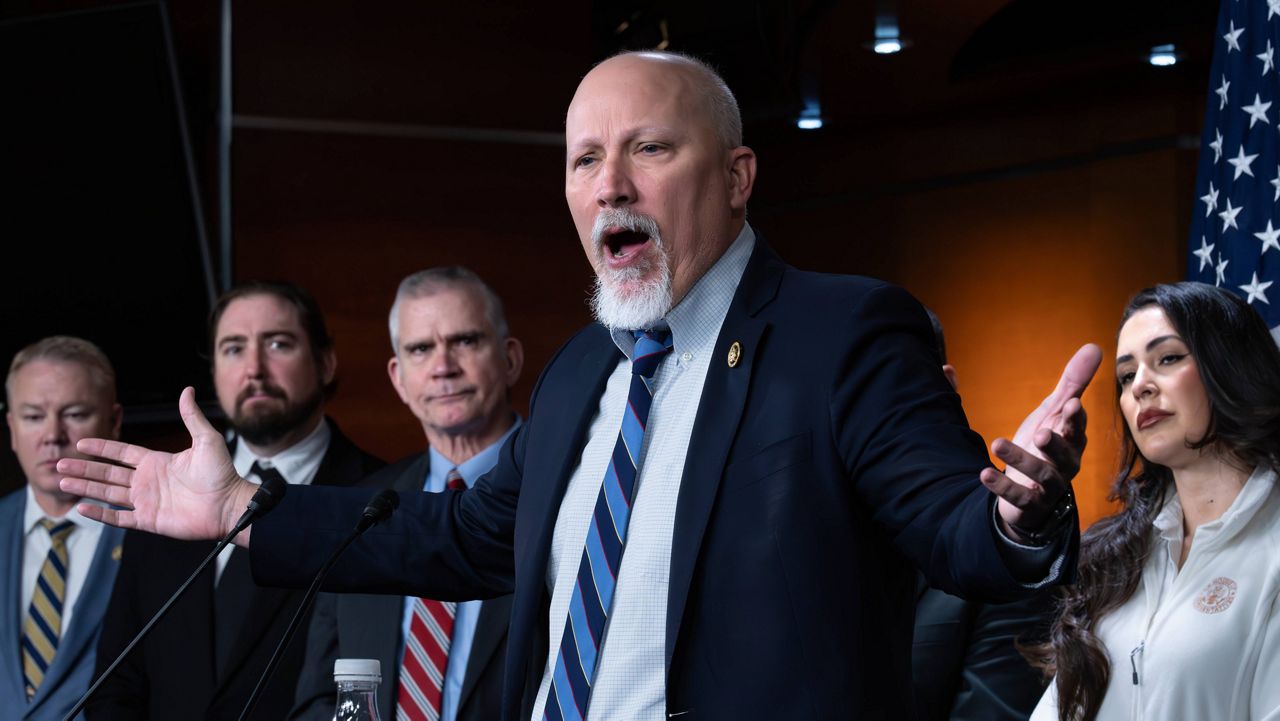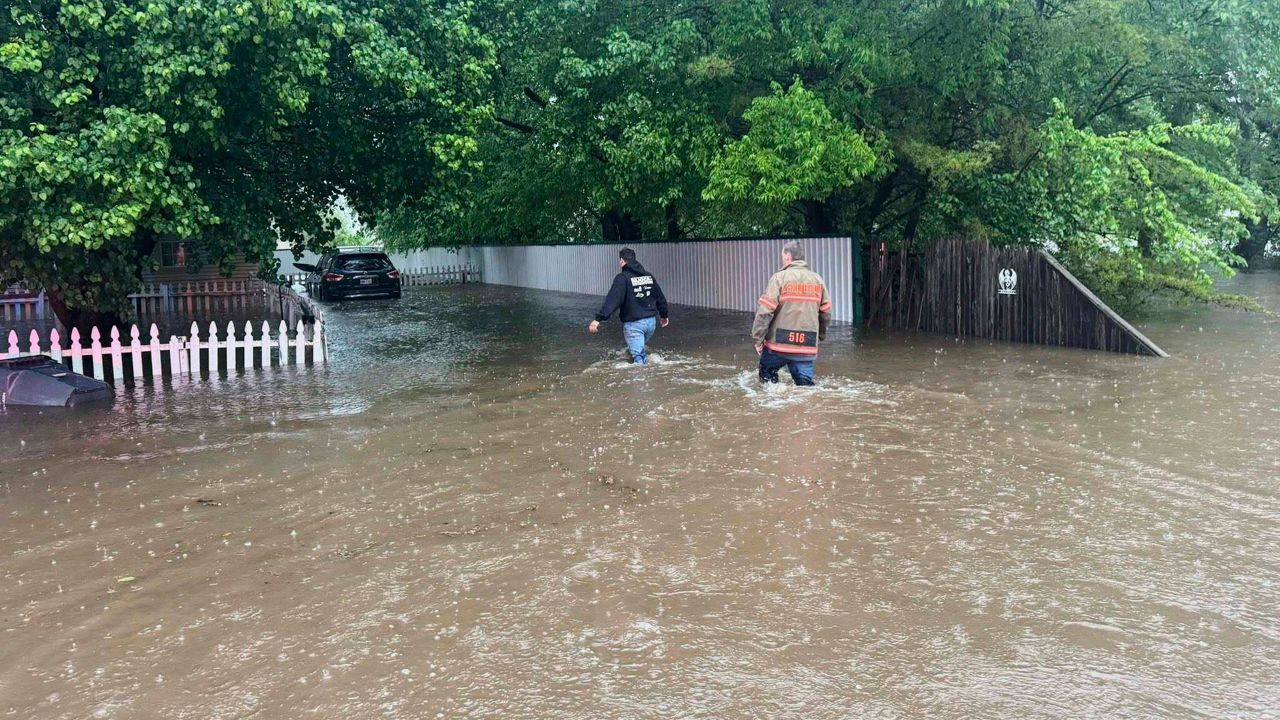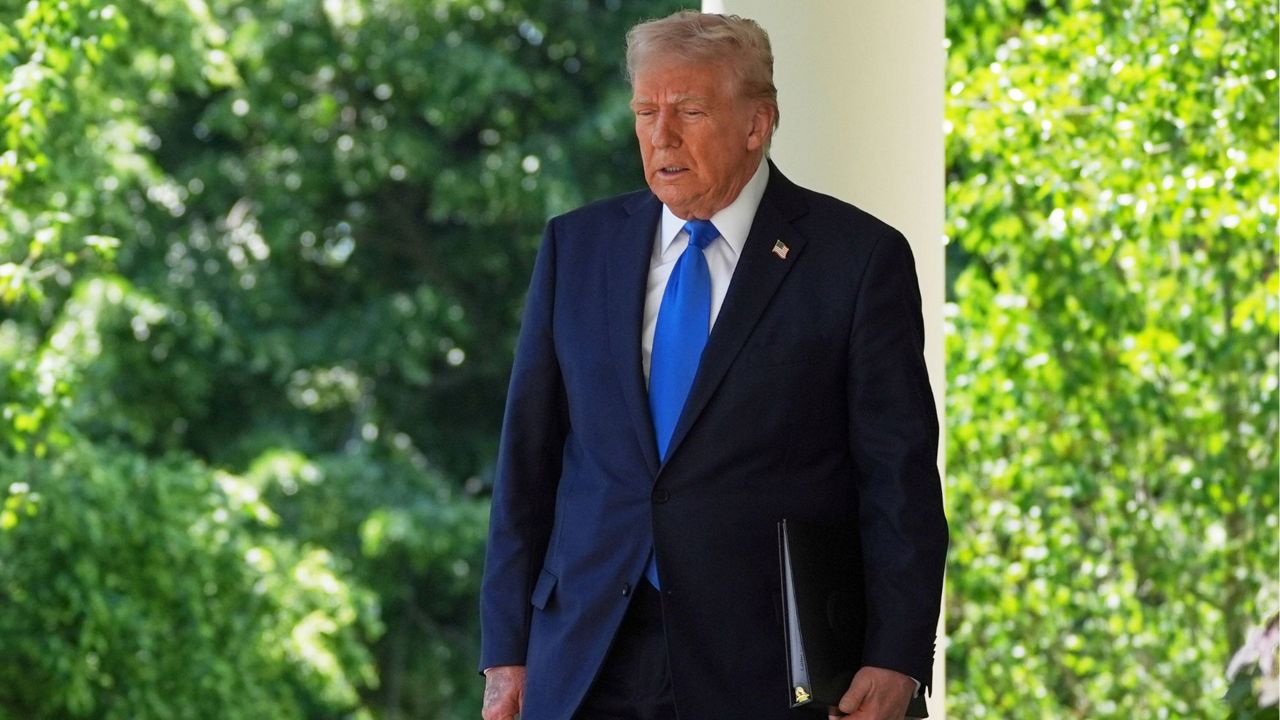As American Paul Whelan marked five years of detention in Russia, Secretary of State Antony Blinken pledged the U.S. “will not rest” until he is back home.
“For far too long, Paul and his family have suffered the consequences of the Russian government’s decision to wrongfully detain U.S. citizens,” Blinken said in a statement on Wednesday night. “Using people as political pawns is unacceptable.”
Whelan, a former marine, was arrested in Russia on Dec. 28, 2018 and sentenced to 16 years in prison in 2020 on charges of espionage, which he and the U.S. say are baseless.
He is believed to be serving his sentence in an isolated prison labor camp about eight hours outside of Moscow in Mordovia, with Russian state media releasing rare video footage of Whelan inside the penal colony in August.
“After a secret trial behind closed doors, Paul has spent years laboring in a Russian penal colony,” Blinken said. “In the past year alone, he has faced assault from other prisoners and harassment from Russian state-run media.”
Last month, Whelan was attacked by another prisoner, who hit him in the face, according to Whelan’s brother, David Whelan.
National Security Council Coordinator for Strategic Communications John Kirby called the incident, and another report from CNN that Whelan was being targeted by an official at the prison camp, “very troubling” at a press briefing earlier this month.
Kirby added the U.S. was working on another offer to secure his release after Russia rejected a “serious proposal” put forth to bring Whelan home.
“I would tell you, again, that while I don't have a breakthrough to announce today, we did in recent days put forward a serious proposal,” Kirby said last week. “The Russians rebuffed it, regardless of what Mr. Putin says.”
“We're working hard to see what we can do to get another proposal that might be more successful to get both him and Evan out,” he added, also mentioning Evan Gershkovich, a Wall Street Journal reporter who was detained by Russian authorities earlier this year and accused of espionage. The U.S. has also declared him wrongfully detained.
In a recent phone interview with the BBC, Whelan, who has watched multiple other Americans released from Russia in prisoner swaps over his five years imprisoned, said he was concerned he could once again be left out of a potential future deal between Washington and Moscow, adding it is “unfathomable” that he has been left behind.
Last year, the Biden administration secured the release of both Brittany Griner, the WNBA star detained for 10 months for possessing two vape cartridges containing hashish oil, and Trevor Reed, a former Marine who spent nearly three years in Russian detention for allegedly assaulting a police officer while drunk in Moscow.
In exchange for Griner’s release, the U.S. allowed Russian arms dealer Viktor Bout, who was sentenced to 25 years in prison in the U.S. on charges that included conspiring to kill American citizens, to be freed. To secure Reed’s deal, the Biden administration released Russian pilot and convicted drug trafficker Konstantin Yaroshenko.
Whelan was left out of both exchanges.
“And we’ve not forgotten about Paul Whelan,” President Joe Biden said during remarks just over a year ago announcing the release of Griner.
“Sadly, for totally illegitimate reasons, Russia is treating Paul’s case differently than Brittney’s,” Biden added.
Speaking at a press conference last week, Blinken pledged that wrongfully detained Americans around the world were not “names on a piece of paper” but “real people, real families” to the Biden administration.
Administration officials frequently say the president has to make tough decisions when it comes to prisoner swaps but emphasize bringing wrongfully detained Americans home is a priority, as Biden did in a statement when announcing a deal with Venezuela last week.
“Since President Biden took office, the United States has secured the release of more than forty wrongful detainees, and not a day goes by without intensive U.S. Government efforts to bring Paul home,” Blinken said in his Wednesday statement.
Over the last six months, some of the Biden administration’s most high profile prisoner swap deals, including the one with Venezuela as well as one with Iran, have drawn mixed reactions.
The agreement with Iran in particular sparked pushback from some Republicans, who said it could incentivize Tehran to take more American hostages as leverage and allow Iran to fund more terrorism around the world.
The deal allowed for the release of five detained Americans held by Tehran in exchange for Iranians imprisoned in the U.S. as well as $6 billion in Iranian funds to be moved from banks in South Korea to Qatar for Iran to request for humanitarian purposes.








